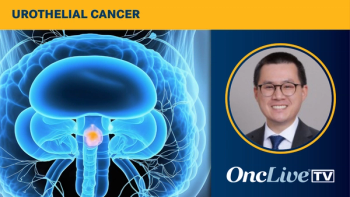
Bright Future in Advanced Urothelial Cancer
Shilpa Gupta, MD: The future is looking bright for patients with advanced urothelial cancer. We have several drugs that have been approved, several drugs that we are looking at in the phase 3 setting for antibody-drug conjugate combinations, and cabozantinib and immunotherapy combination were recently shown to be effective in the salvage setting. More recently, single-agent cabozantinib was also shown to be very effective in patients with heavily pretreated advanced urothelial cancer.
We have this added agent, which is a VEGF TKI [tyrosine kinase inhibitor], cabozantinib, which seems to be showing promising activity. We will see how the ongoing trials with immunotherapy combinations pan out. We are also looking at augmenting the immunotherapy maintenance-use backbone with other novel drugs. That will be very interesting. There's a lot of excitement out there to use these agents. As more and more agents are moving earlier on [in treatment], I think the first-line combination trials will be very important and may change the treatment paradigm moving forward.
Jeanny Aragon-Ching, MD: I think we are at a very exciting phase of bladder cancer right now. There are a lot of ongoing trials with the use of combinations. The next step in the field is trying to combine immunotherapy with another agent, like enfortumab. In patients who have good targets, who have mutations, this is also an area where we can capitalize on the use of other targeted therapies, like HER2-targeted therapies, antibody-drug conjugates, because we already know that enfortumab has had great success. Other drugs that are in the pipeline are very exciting.
Transcript Edited for Clarity




































